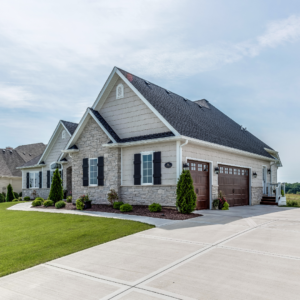Buying a fixer-upper can be a rewarding journey, transforming a neglected property into a dream home. Several valuable lessons emerge from this process, emphasizing the importance of preparation, budget management, and realistic expectations. Many individuals assume that renovations are straightforward, but they often uncover unforeseen challenges that require patience and adaptability.
The excitement of personalizing a space can quickly diminish when faced with structural issues or extensive repairs. Knowing what to expect can make all the difference in how one navigates these pitfalls. For those contemplating a fixer-upper, understanding these lessons can lead to a more successful and satisfying renovation experience.
Preparing to Buy a Fixer-Upper
Buying a fixer-upper requires thorough preparation to ensure a successful project and a wise investment. Key considerations include budgeting effectively, evaluating the location and real estate market, and understanding the significance of home inspections.
Assessing Your Budget
Determining a budget is essential before buying a fixer-upper. This budget should encompass the purchase price as well as the estimated cost of repairs and renovations.
They should consider costs such as:
- Structural repairs
- Plumbing and electrical upgrades
- Cosmetic improvements
Unexpected expenses can arise, so a contingency fund of 10-20% of the renovation budget is advisable. Additionally, securing financing can be complex for fixer-uppers. Traditional mortgage options may not suffice. They might explore renovation loans that roll the purchase and repair costs into one mortgage.
Evaluating Location and Real Estate Market
Location plays a crucial role when purchasing a fixer-upper. Buyers must investigate the neighborhood’s appeal, schools, and amenities.
They should analyze market trends to ensure the property will appreciate in value after renovations. Factors to consider include:
- Proximity to retail and transportation
- Safety and community reputation
- Future development plans in the area
A desirable location can enhance the investment’s return. They should also compare similar properties to gauge the potential market value post-renovation.
Importance of Home Inspections
Conducting a thorough home inspection is vital before finalizing the purchase. A professional inspector evaluates the property for potential issues that may not be visible to the untrained eye.
Key areas to assess include:
- Foundation stability
- Roofing condition
- HVAC systems
Awareness of existing problems helps buyers make informed decisions regarding repair costs. This process can uncover serious surprises that could drastically affect the investment’s feasibility.
Investing in a fixer-upper involves careful planning and attention to detail to avoid unexpected challenges.
If an inspector has pointed out specific issues with the property that will need rectifying, it can be beneficial to get a second opinion on the matter from a specific industry professional. For instance, if there are notable issues with the roof, contacting professionals that deal primarily with residential roofing, as well as industrial and commercial roofing repairs can give you more insight into the exact issues, as well as a more accurate idea of what the issues might cost to fix.
Uncovering Hidden Issues and Surprises
When purchasing a fixer-upper, hidden issues can emerge unexpectedly. Identifying these problems early can save significant time and money. Careful inspection of the home’s structure, plumbing, and electrical systems is essential for a successful renovation.
Identifying Structural Problems
Structural issues may include cracks in the foundation, sagging roofs, or compromised walls. A home inspection should focus on visible damage and check for signs of water intrusion or poor ventilation.
Common Structural Concerns:
- Cracks in walls or ceilings
- Uneven flooring
- Signs of mold or moisture
It is advisable to hire a professional to assess the condition of the roofing and foundation. They can identify potential leaks and related damage that may not be immediately visible. Early detection of these problems is crucial as repairs can become costly if left unaddressed.
Homeowners should prioritize contractors who understand local weather impacts and building codes when evaluating roof damage. Local specialists that focus on residential repair and replacement can often provide rapid, on-site assessments and clearer estimates for whether a patch or full replacement is required.
For area-specific resources and examples of workmanship, consider consulting winnipeg roofing company, or elsewhere, to review typical inspection findings, material options, and warranty practices. Bringing in a reputable local roofer early helps protect interior renovations and keeps contingency costs under control.
Homeowners should also be aware that small issues—missing or curled shingles, failing flashing, or slow leaks—can escalate quickly during heavy weather and jeopardize interior renovations. Scheduling a prompt inspection often clarifies whether a targeted patch or a more extensive intervention is needed; many local specialists offer same-day evaluations to prioritize urgent fixes.
For an immediate, experienced assessment of visible damage and next steps, consider contacting a trusted roof repair service. Acting early helps protect both the home and renovation budget.
Dealing With Plumbing and Electrical Work
Plumbing and electrical systems often require thorough evaluation in fixer-uppers. Outdated or faulty plumbing can lead to leaks, water damage, and mold growth. Key signs to investigate include:
- Water stains on walls or ceilings
- Low water pressure
- Rusty or corroded pipes
For electrical systems, old wiring can pose serious safety risks. Homeowners should look for:
- Outdated circuit breakers
- Flickering lights
- Warm outlets
Engaging professionals for plumbing and electrical work is essential. They can ensure installations meet current codes, which enhances safety and may prevent future headaches. Regular maintenance of these systems can lead to long-term savings and a more comfortable living environment.
Planning and Executing Renovations
Effective planning and execution are crucial to successfully renovating a fixer-upper home. This process involves coordinating with contractors and determining which tasks may be manageable as DIY projects.
Working With Contractors
Selecting the right contractor can significantly impact the quality of renovations. Research local contractors, checking reviews and previous work. It’s essential to obtain multiple quotes to compare pricing and services offered.
Key factors to consider:
- Experience: Choose contractors with a strong background in home renovations.
- Licensing and Insurance: Verify they have the necessary permits and appropriate insurance.
- Communication: Ensure they understand your vision and can provide updates throughout the project.
Establishing a clear contract outlining timelines, costs, and responsibilities helps avoid misunderstandings. Regular check-ins can keep the project on track, ensuring it aligns with the homeowner’s goals.
Considering DIY Home Improvement
Many homeowners find satisfaction in tackling certain renovations themselves. Assessing skills and available time is vital before committing to a DIY approach.
Popular DIY projects include:
- Painting walls
- Landscaping
- Installing shelves
- Minor plumbing tasks
DIY projects can save money, but require careful planning. Homeowners should be realistic about their capabilities to avoid costly mistakes. Researching techniques online or attending workshops can enhance skills and efficiency, leading to successful home improvements.
Reflecting on the Fixer-Upper Experience
The journey of purchasing and renovating a fixer-upper offers valuable insights. Evaluating the investment made and the lessons learned can significantly impact future homeownership decisions.
Evaluating Your Investment
Investing in a fixer-upper often requires a detailed assessment of both costs and benefits. It’s crucial to track all expenses, from initial purchase price to subsequent renovations. Creating a budget can help manage costs effectively.
Consider the return on investment (ROI) for each renovation. Key upgrades, such as kitchen and bathroom remodels, typically yield higher returns. Items like new roofing or energy-efficient windows can enhance property value while reducing long-term maintenance costs.
Another often-overlooked upgrade is the loft hatch: a poorly insulated or draughty hatch can undermine the benefits of new roofing or windows by allowing heat to escape and encouraging condensation in the roof void. Upgrading to a low-profile, insulated and draught-proof loft hatch not only reduces heat loss but also helps meet Part L requirements for airtightness and energy performance. These modern hatches are designed for straightforward installation and can prevent cold bridging and moisture issues that lead to long-term damage. For examples of compliant options and product details, see accesspanelsdirect.com/product-category/loft-hatches/. Additionally, a well-sealed loft hatch can significantly improve the overall thermal envelope of your home, working in conjunction with other insulation measures to create a more consistent indoor temperature. The investment in a quality insulated hatch typically pays for itself through reduced energy bills within a few years, making it one of the most cost-effective home improvements available.
Analyzing neighborhood trends can also inform the viability of the investment. If property values in the area are rising, the investment in a fixer-upper may prove beneficial over time. Documenting progress through photos can highlight the transformation and reinforce the investment’s value.
Lessons for Future Homeowners
Future homeowners can draw critical lessons from the fixer-upper experience. First, patience is essential. Renovations often take longer than expected and can uncover unforeseen issues. It’s wise to plan for delays in the timeline and budget.
Effective communication with contractors is vital. Clear expectations and regular updates can prevent misunderstandings and help keep projects on track. Homeowners should also be open to adapting their plans based on expert advice.
Lastly, embracing the DIY approach can be beneficial, but it should be balanced with realistic assessments of one’s skills. Tackling manageable projects can save money and create a personal touch, while more complex tasks may necessitate professional assistance. These lessons prepare future buyers for the challenges of home improvement while enhancing their overall experience.




